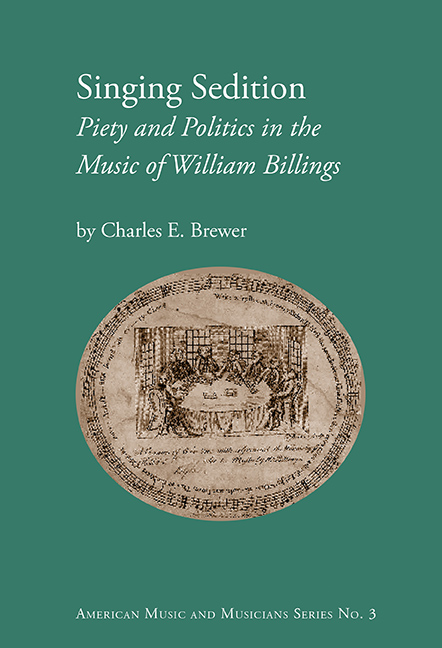Prologue
Summary
Significant scholarly interest in the music of William Billings (1746-1800) increased exponentially during the Bicentennial of the American Revolution. As the first American composer to publish collections of his own works, Billings's six printed collections of psalm tunes and anthems formed the primary documents for any study of his music and his significance. Research on William Billings was at first narrowly focused on the contents of his printed collections. McKay and Crawford's distinguished biography then added a detailed and exhaustive examination of these collections in the light of the known details of his life. A critical edition of these works prepared by Hans Nathan and Karl Kroeger, along with Richard Crawford, made the music readily available for both study and performance. This has been followed by specialized studies providing both bibliographic details and new information as it came to light. More recent research has begun to place his compositions in the broader context of life in late eighteenth-century New England, whether as a “maverick” or a participant in a male-dominated gender-specific political culture. Aside from these studies focused specifically on the history of music in early America, Billings has not been a prominent figure in either older or more recent histories of the American Revolution. This is perhaps understandable since his role was not as prominent or easy to document as Samuel Adams or Rev. Samuel Cooper, people with whom Billings had some associations, and, in addition, his music was easy to dismiss as church music. The importance of these earlier studies is significant, but the research for this new examination of Billings begins with a different premise.
I strongly felt that there were deeper cultural meanings and resonances within the works of Billings that were still to be uncovered. As my research continued, it became evident that there were broader cultural contexts and institutions in colonial and revolutionary Boston that would have affected Billings throughout his life and could more deeply inform an interpretation of his works.
- Type
- Chapter
- Information
- Singing SeditionPiety and Politics in the Music of William Billings, pp. viii - xiiiPublisher: Boydell & BrewerPrint publication year: 2017



